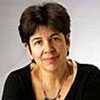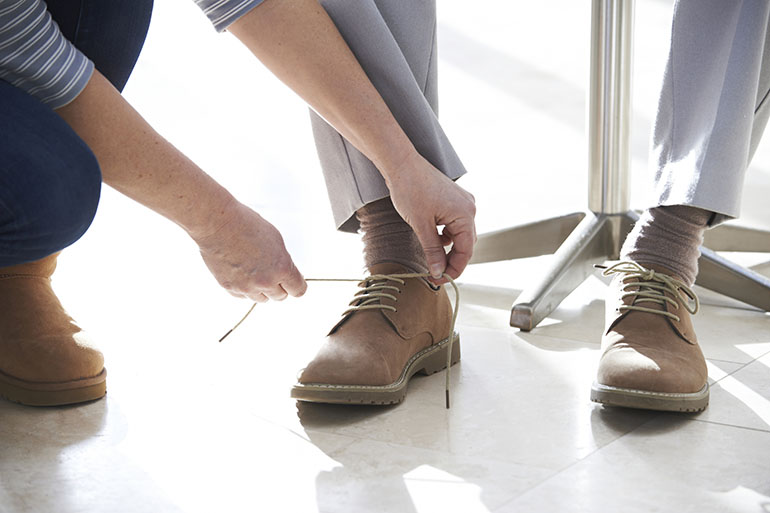Ask Kathy Kenyon about what it’s like to be a family caregiver, and she’ll give you an earful.
On several occasions, doctors have treated this accomplished lawyer like she was an interloper — not the person to whom her elderly parents had entrusted health care and legal decision-making.
Kenyon wasn’t told how to identify signs that her mother, who had low sodium levels, was slipping into a medical crisis. Nor was she given any advice about how to prevent those crises from occurring.
When her parents — both with early-stage dementia — moved to the Washington, D.C. area, it took months for medical records to be transferred because Kenyon’s right to the information wasn’t initially recognized.
An aberration? Hardly, according to a long-awaited report on family caregiving from the National Academies of Sciences, Engineering and Medicine, which acknowledges that the nearly 18 million caregivers for older adults are routinely marginalized and ignored within the health care system.
 NAVIGATING AGING
NAVIGATING AGING“Caregivers are, on the one hand, heavily relied upon but on the other hand overlooked,” said Richard Schulz, chair of the 19-member expert panel that crafted the report and a professor of psychiatry at the University of Pittsburgh.
Deeming that unacceptable, the panel has called for extensive changes to the health care system, including a family-centered approach to care that would recognize caregivers’ essential contributions.
What might that look like, practically, from a caregiver’s perspective? The report doesn’t say, but recommendations can be extrapolated from its findings.
Your identity needs to be documented in your loved one’s medical records. “We need to start by having a clear sense of who the caregiver is” so that individual can be recognized as part of a team looking after an older adult, Schulz said. Currently, this doesn’t happen routinely.
That’s beginning to change. Thirty states, the District of Columbia, the U.S. Virgin Islands and Puerto Rico have now passed versions of the Caregiver Advise, Record, Enable (CARE) Act, drafted by AARP, which calls for information about family caregivers to be included in hospital medical records.
At every doctor’s appointment with an elderly family member or friend, check that the record lists your name and phone number, and ask that you be contacted in any kind of emergency.
Your capacity to provide care to a loved one should be assessed. A classic example: An elderly man with diabetes and severe arthritis who weighs 220 pounds is discharged from the hospital, barely able to walk. His elderly wife, who weighs just over 100 pounds, is his caregiver and she’s expected, somehow, to help him get in and out of bed and keep him from falling.
“No one asks you if you’re comfortable doing the things you’ll need to be doing, if you have the time or what other responsibilities you have,” said Laura Gitlin, a member of the panel and director of the Center for Innovative Care in Aging at Johns Hopkins University School of Nursing.
Your job: Speak up and tell doctors, nurses or social workers what you can and cannot do.
Your capacity to provide care should be incorporated into your loved one’s care plan. Your abilities and limitations need to be recognized and addressed in every care plan that’s developed for your loved one. If you work from 7 a.m. to 3 p.m. and a parent needs help toileting, dressing and eating breakfast in the morning, for instance, that gap needs to be acknowledged and discussed.
There’s a lot at stake: Unrealistic expectations about caregivers’ capacities put the health of seniors — and caregivers’ own health — at risk.
You should get training in medical tasks for which you’ll be responsible. More than half of family caregivers don’t receive training in the tasks they’re expected to perform for loved ones at home: dressing wounds, changing catheters, administering medications or managing incontinence, for instance.
Although the CARE Act calls for training to be provided in hospitals and rehab centers, this isn’t happening on a widespread scale, yet.
Nothing substitutes for hands-on instruction, usually from a nurse. Be sure to reach out to hospital, rehab or home health nurses and ask for help understanding what you need to do and how to do it.
You should be connected with community resources that can be of help. A variety of resources for caregivers are available in many communities: local Area Agencies on Aging, which offer assistance accessing services; centers on independent living, which help people with disabilities; and disease-focused groups such as the Alzheimer’s Association, among other organizations.
But too often, “it’s not at all clear where families should turn when they get a diagnosis,” Gitlin said. “No one tells them who they should contact or which resources might be most helpful.”
Ask for this kind of information from your physician’s office, discharge staff at a local hospital and people you know in the community. The government’s Eldercare Locator is a good place to gather names of local organizations that may be of help.
You should be given access to medical records and information. Misunderstanding of the medical privacy act known as HIPAA (Health Insurance Portability and Accountability Act) is common and creates barriers to family caregivers getting information they need to oversee a loved one’s care.
In fact, medical institutions are obligated to hand over information when an older adult has granted a caregiver a durable power of attorney for health care decisions or a HIPAA authorization specifying that they receive access to medical materials.
In written testimony to the government, Kenyon said she was once told she couldn’t walk down a hall to see her father in a sleep center because doing so would violate HIPAA. That was an ill-informed interpretation of the law.
While there’s no easy solution, standing up for yourself is essential. “Advocate for your rights and make sure your caregiving contributions are recognized and supported to the extent they can be,” said the University of Pittsburgh’s Schulz. “You’re an important person in the health care system.”
We’re eager to hear from readers about questions you’d like answered, problems you’ve been having with your care and advice you need in dealing with the health care system. Visit kffhealthnews.org/columnists to submit your requests or tips.
KHN’s coverage of late life and geriatric care is supported by The John A. Hartford Foundation.







